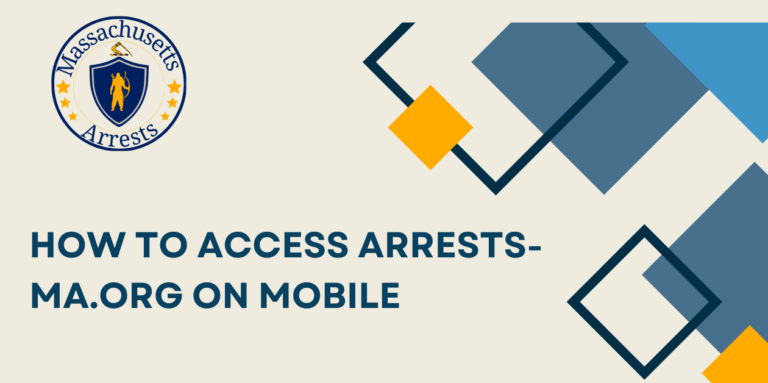Reporting Crime and Emergency Services in Massachusetts
Reporting crime and emergency services play a critical role in maintaining public safety and ensuring swift assistance during crises. In Massachusetts, like in any other state, timely and accurate reporting can make a significant difference in preventing criminal activities, providing aid to victims, and fostering a safer community environment.
Why Reporting Crime is Crucial
Reporting crime is not just about apprehending criminals but also about safeguarding communities. By promptly reporting criminal activities, residents can help law enforcement agencies take necessary actions to prevent further harm and maintain order. Moreover, timely reporting ensures that victims receive the assistance they need, whether it’s medical attention, legal support, or protection from further harm.
Types of Crime to Report
It’s essential to understand what constitutes a reportable crime. While major crimes like assault, robbery, and vandalism are obvious, reporting suspicious activities and emergency situations is equally important. Suspicious behaviours, such as loitering in unusual places or tampering with property, can often indicate criminal intent and should be reported promptly.
How to Report Crime in Massachusetts
In Massachusetts, reporting a crime or emergency typically involves dialling 911. This connects callers to emergency dispatchers who can dispatch the appropriate responders to the scene. For non-emergency incidents, residents can contact their local police department or use online reporting systems for minor offences or incidents that do not require immediate attention.
Understanding Emergency Services
Emergency services in Massachusetts encompass various agencies, including police departments, fire departments, and medical services. Each plays a crucial role in responding to different types of emergencies, from crime scenes and fires to medical crises and accidents.
Roles of Emergency Responders
Police officers, firefighters, and emergency medical technicians (EMTs) are the frontline responders in emergency situations. Police officers are responsible for maintaining law and order, investigating crimes, and ensuring public safety. Firefighters handle fire emergencies, rescue operations, and hazardous material incidents, while EMTs and paramedics provide medical care and transportation to those in need.
Importance of Accurate Reporting
Accurate reporting is vital for ensuring that emergency responders have the necessary information to respond effectively. Detailed reports help authorities assess the situation, allocate resources efficiently, and gather evidence for investigations. Moreover, maintaining accurate statistical records allows policymakers to identify trends, allocate resources, and implement crime prevention strategies effectively.
Community Involvement in Reporting Crime
Communities play a significant role in reporting crime and maintaining public safety. Neighbourhood watch programs, crime tip hotlines, and citizen reporting apps empower residents to report suspicious activities and collaborate with law enforcement agencies. By actively engaging with their communities, residents can contribute to crime prevention efforts and help create a safer environment for everyone.
Common Challenges in Reporting Crime
Despite the importance of reporting crime, several challenges hinder effective reporting. Language barriers, fear of retaliation, and lack of awareness about reporting procedures are some common obstacles that prevent people from coming forward. Addressing these challenges requires outreach efforts, community engagement, and the implementation of user-friendly reporting systems.
Initiatives to Improve Reporting Systems
To overcome these challenges, various initiatives have been implemented to improve reporting systems in Massachusetts. Outreach programs raise awareness about reporting procedures and encourage community participation. Multilingual services cater to diverse populations, ensuring that language barriers do not hinder reporting efforts. Additionally, increased police presence in communities fosters trust and encourages residents to report crime without fear of reprisal.
Resources Available for Victims
Victims of crime have access to a range of support services in Massachusetts, including victim advocacy organizations, legal assistance, and counselling programs. These resources aim to help victims cope with trauma, navigate the criminal justice system, and rebuild their lives in the aftermath of a crime.
Technology’s Role in Reporting Crime
Advancements in technology have transformed the way we report crime and emergency services. Surveillance cameras provide valuable evidence for investigations, mobile apps allow users to report incidents conveniently, and GPS tracking enhances the efficiency of emergency responders. By leveraging technology, authorities can streamline reporting processes and improve response times.
Impact of Reporting Crime on Community Safety
Reporting crime not only helps apprehend criminals but also contributes to long-term crime prevention efforts. By reporting criminal activities promptly, communities can identify problem areas, implement targeted interventions, and collaborate with law enforcement agencies to address underlying causes of crime. Moreover, active reporting fosters trust between authorities and communities, leading to safer neighbourhoods and improved quality of life for residents.
Examples of Successful Reporting Initiatives
Massachusetts has witnessed several successful reporting initiatives that highlight the importance of collaboration between authorities and communities. From neighbourhood watch programs that reduce crime rates to citizen reporting apps that facilitate communication between residents and law enforcement, these initiatives demonstrate the positive impact of community involvement in reporting crime.
FAQs
Explore our comprehensive Frequently Asked Questions (FAQ) section to find answers to common queries about ARRESTS.ORG MA.
What is the process for reporting a crime in Massachusetts?
To report a crime in Massachusetts, you can contact your local police department or call 911 for emergencies. Provide as much information as possible, including the location, description of the incident, and any relevant details. The police will guide you through the next steps.
How can I report a non-emergency crime?
You can report a non-emergency crime by contacting your local police department directly. They will provide you with the appropriate channels to report the incident, such as phone numbers or online platforms. Be prepared to provide details about the crime and any supporting evidence.
What should I do if I witness a crime in progress?
If you witness a crime in progress, ensure your safety first. If it is safe to do so, call 911 immediately and provide the necessary details to the emergency operator. Stay on the line and follow any instructions given until help arrives.
How can I report anonymously?
If you wish to report a crime anonymously, you can contact Crime Stoppers at their designated hotline. Crime Stoppers allows individuals to provide information about crimes without revealing their identity. Your information will be kept confidential.
What should I do if I need emergency services in Massachusetts?
In case of an emergency, dial 911 immediately. Provide accurate information about the nature of the emergency, your location, and any other relevant details. Stay on the line until help arrives and follow any instructions given by the emergency operator.
Who should I contact if I have questions or need further assistance?
If you have any questions or need further assistance regarding reporting crime or emergency services in Massachusetts, you can contact your local police department or the Massachusetts State Police. They will be able to provide you with the necessary information and guidance.







